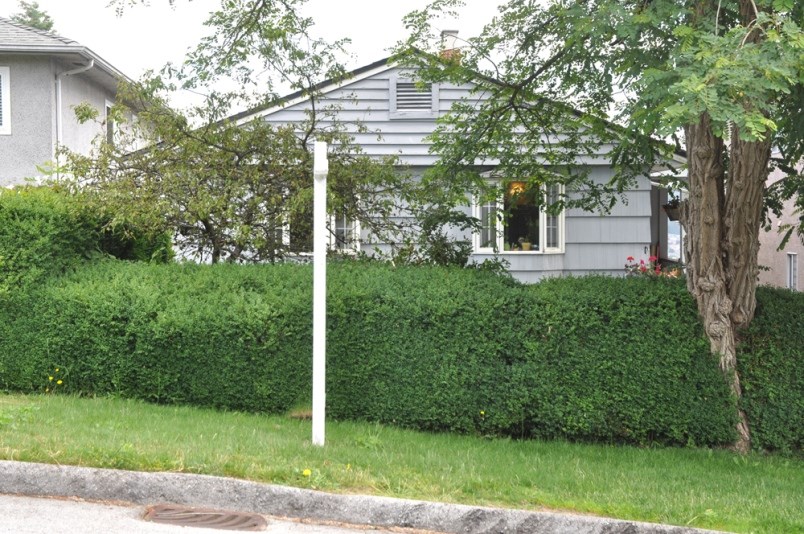When property assessments land in the mail this week, some Burnaby residents will find the values of their homes have increased by some of the biggest numbers in the region.
Depending on where you live, the values of some residential properties in Burnaby have increased as much as nearly 50 per cent.
For instance, the value of a typical single-family home in Buckingham neighbourhood built in 1971 jumped in value by 46 per cent to $2.72 million, according to B.C. Assessment.
The neighbourhood saw the biggest percentage increase in property values in Metro Vancouver, only matched by single-family homes in North Vancouver’s Lynn Valley.
Also in Burnaby, the value of a single-family home built in 1946 in the Capitol Hill area increased 46 per cent to $1.33 million.
With many homes topping the $1.3-million mark for the first time this year, hundreds if not thousands of owners could be saying goodbye to their homeowner grants.
Last year, 91 per cent of homes in the province fell below the eligibility threshold. But in Burnaby, 78 per cent of residential homes met the lower eligibility threshold, and a recent report from Metro Vancouver suggested less than 50 per cent of homeowners in the region will fail to qualify for the break.
The basic homeowner grant, provided by the province is $570. Seniors, veterans and people with disabilities may qualify for additional grants of $275, for a total of $845. The amount of the grant starts dropping for properties worth more than $1.2 million and hits zero when the property value reaches $1.35 million.
Burnaby city Coun. Sav Dhaliwal said he’s concerned the huge increases will prove to be a major financial burden on some homeowners, especially seniors. He pointed out not only the loss of the homeowner grant, but a disproportionate increase in property taxes.
Right now, the city is considering roughly a 2.5 per cent property tax increase, but for homes assessed above the average increase, the tax bill could be considerably higher. B.C. Assessment noted the typical single-family increase was between 30 to 50 per cent, while the typical strata property saw increases of 15 to 30 per cent in Burnaby.
Dhaliwal said now is the ideal time for the province to freeze assessments at 2016 levels, suggesting the market has cooled since the assessments were taken in July before the province’s foreign buyer tax took effect.
“If the assessments are frozen, everybody’s property tax would be raised equally,” he told the NOW,
If the provincial government doesn’t want to freeze assessments, the Burnaby councillor would like to see the grant threshold be increased in the Metro Vancouver area, but he’s not holding his breath on either possibilities.
While homeowners can appeal there assessments and seniors can defer paying their property taxes, Dhaliwal said it doesn’t address the crux of the problem.
“The way the assessment, the property taxes are done, it’s time for the provincial government to review it, it’s not sustainable and it creates a lot of hardship for families right through the Lower Mainland particularly,” he said.
Dhaliwal also said he sees the property assessments creating friction in the community with some people suggesting people who want a single-family home can pay it.
“People who’ve owned homes for years and years, they didn’t foresee this,” he said. “They never expected this and it’s not their fault, it’s out of their control what’s been happening.”
A typical highrise unit in Metrotown built in 1999 is worth about $608,000, up 19 per cent, while a Sullivan Heights strata townhouse from 1972 jumped to $560,000 or 29 per cent.



